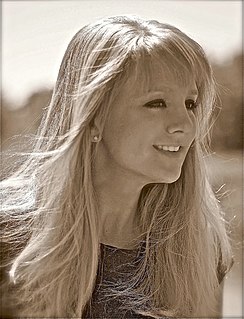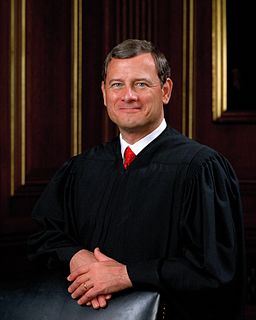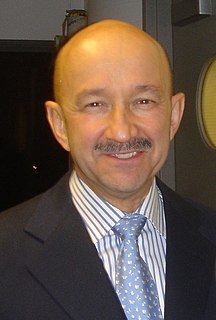A Quote by Jenna Blum
How could she tell him that we come to love those who save us?
Related Quotes
If he looked into her face, he would see those haunted, loving eyes. The hauntedness would irritate him - the love would move him to fury. How dare she love him? Hadn't she any sense at all? What was he supposed to do about that? Return it? How? What could his calloused hands produce to make her smile? What of his knowledge of the world and of life could be useful to her? What could his heavy arms and befuddled brain accomplish that would earn him his own respect, that would in turn allow him to accept her love?
I told him that I loved him and that I'd always love him and I felt like a child who throws a centavo into a fountain and then she has to tell someone her most extraordinary wish even though she knows that the wish should be kept secret and that, in telling it, she is quite probably losing it. He replied that I was not to worry, that the penny could come out of the fountain again and again and again.
He was making her feel small and absurdly petulant and, worse yet, she suspected he was right. She always suspected he was right. For a brief irrational moment, she wished she could walk away from him. Then she wished, more rationally, that she could love him without needing him. Need gave him power without his trying; need was the choicelessness she often felt around him.
She thought that this man was her savior, that he had come to her at a time in her life when her life demanded completion, an end, a permanent fixing of all that was troubled and shifting and deadly. And yet it was absurd to think this. No person could save another. So she drew back from him and released him.
Yet there were times when he did love her with all the kindness she demanded, and how was she to know what were those times? Alone she raged against his cheerfulness and put herself at the mercy of her own love and longed to be free of it because it made her less than he and dependent on him. But how could she be free of chains she had put upon herself? Her soul was all tempest. The dreams she had once had of her life were dead. She was in prison in the house. And yet who was her jailer except herself?
Yet I was a fool to fancy for a moment that she valued Edgar Linton's attachment more than mine -- If he love with all the powers of his puny being, he couldn't love as much in eighty years, as I could in a day. And Catherine has a heart as deep as I have; the sea could be as readily contained in that horse-trough, as her whole affection be monopolized by him -- Tush! He is scarcely a degree dearer to her than her dog, or her horse -- It is not in him to be loved like me, how can she love in him what he has not?
To tell the truth, this was one of the few cases in which she had not told him just what she was thinking. Usually, she let him know whatever thoughts happened to come to her, and indeed he never took it amiss if she let slip a word that might pain him, because when all was said and done that was the price one paid for sincerity.
Witch Baby wanted to ask Ping how to find her Jah-Love angel. She knew Raphael was not him, even though Raphael had the right eyes and smile and name. She knew how he looked--the angel in her dream--but she didn't know how to find him. Should she roller-skate through the streets in the evenings when the streetlights flicker on? Should she stow away to Jamaica on a cruise ship and search for him in the rain forests and along the beaches? Would he come to her? Was he waiting, dreaming of her in the same way she waited and dreamed?




































